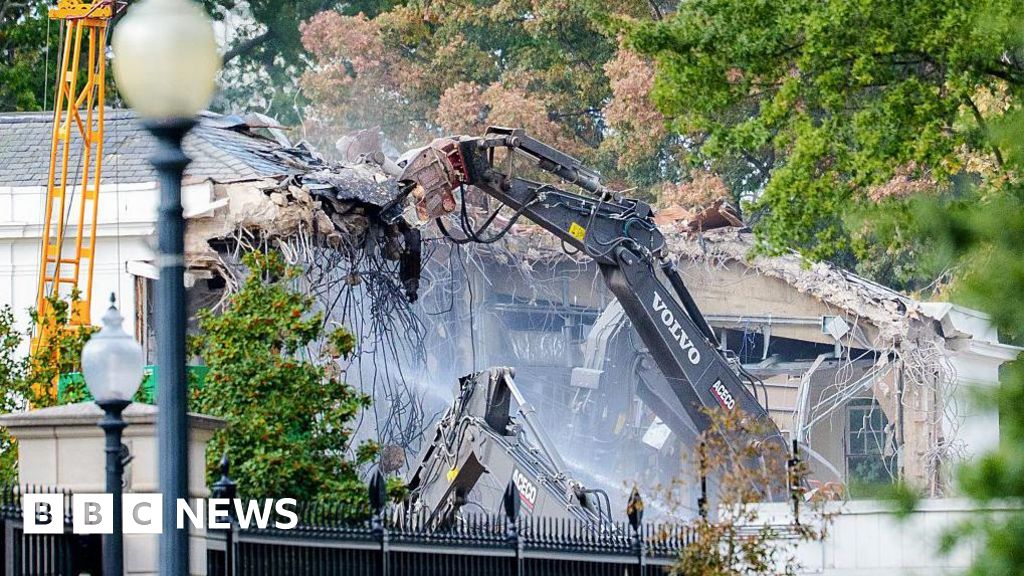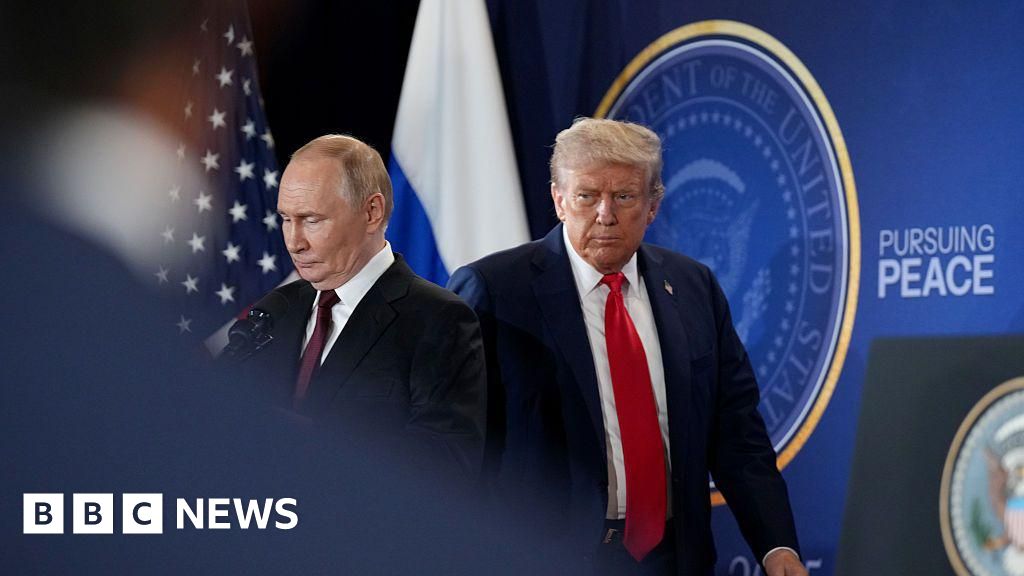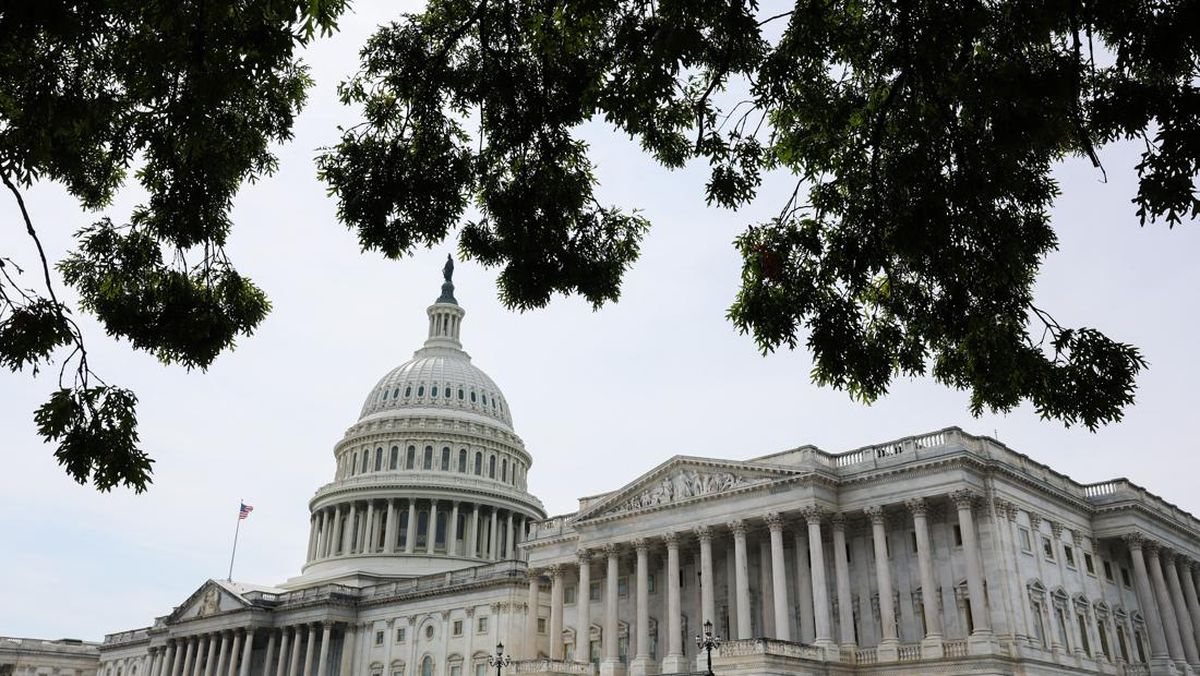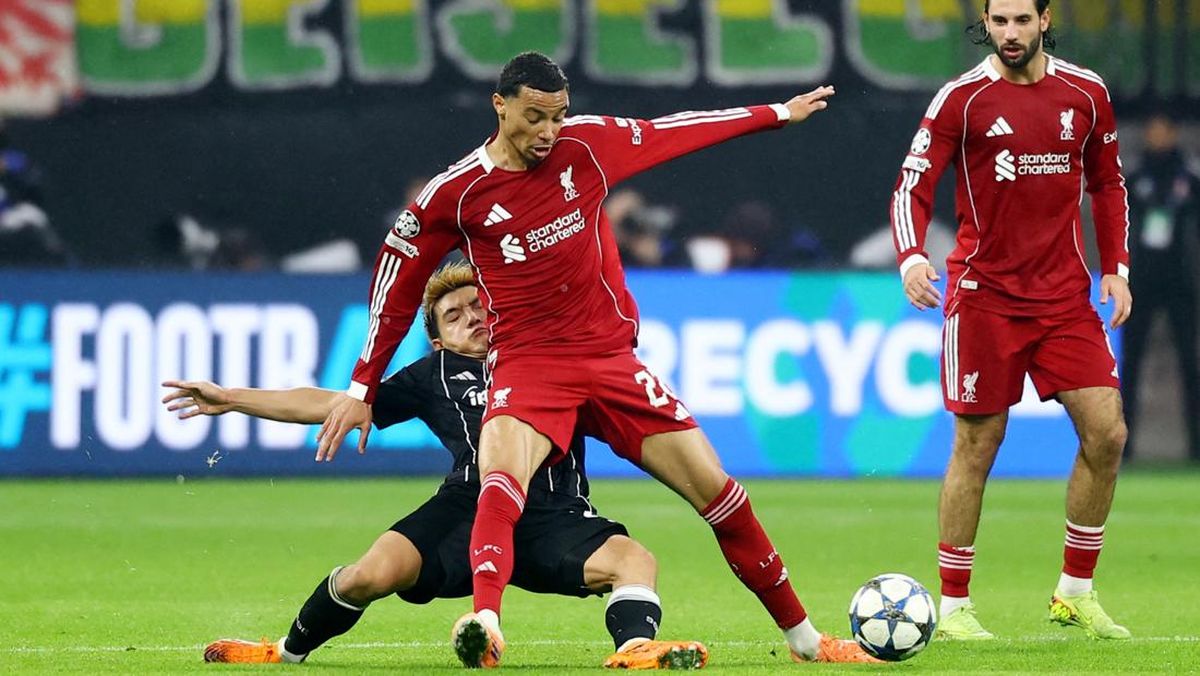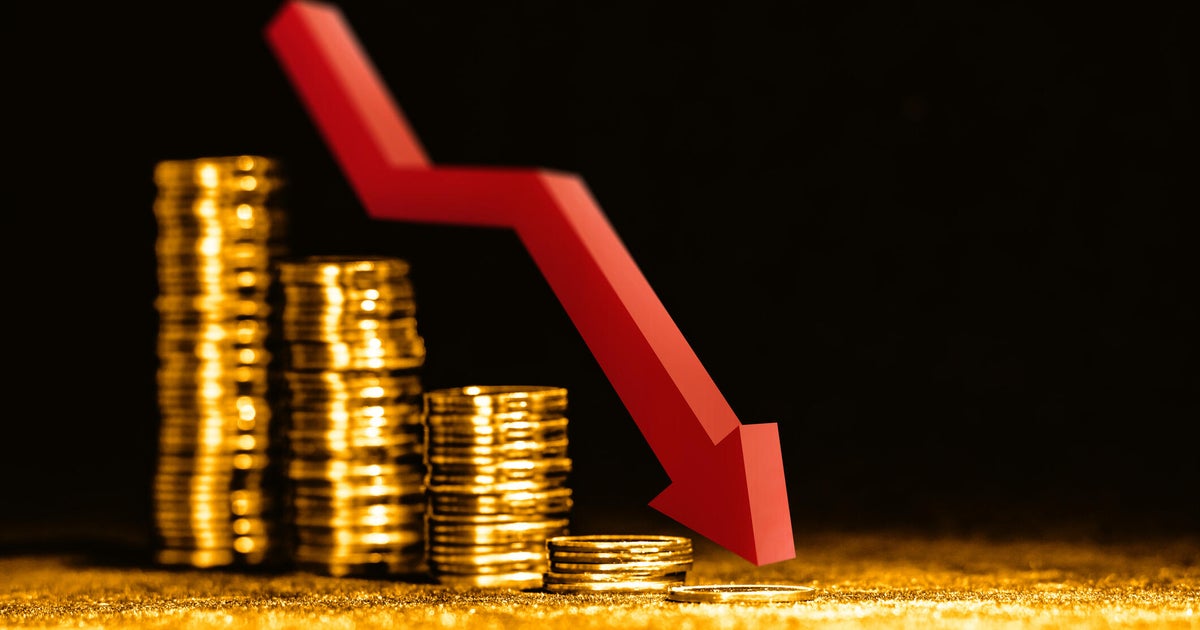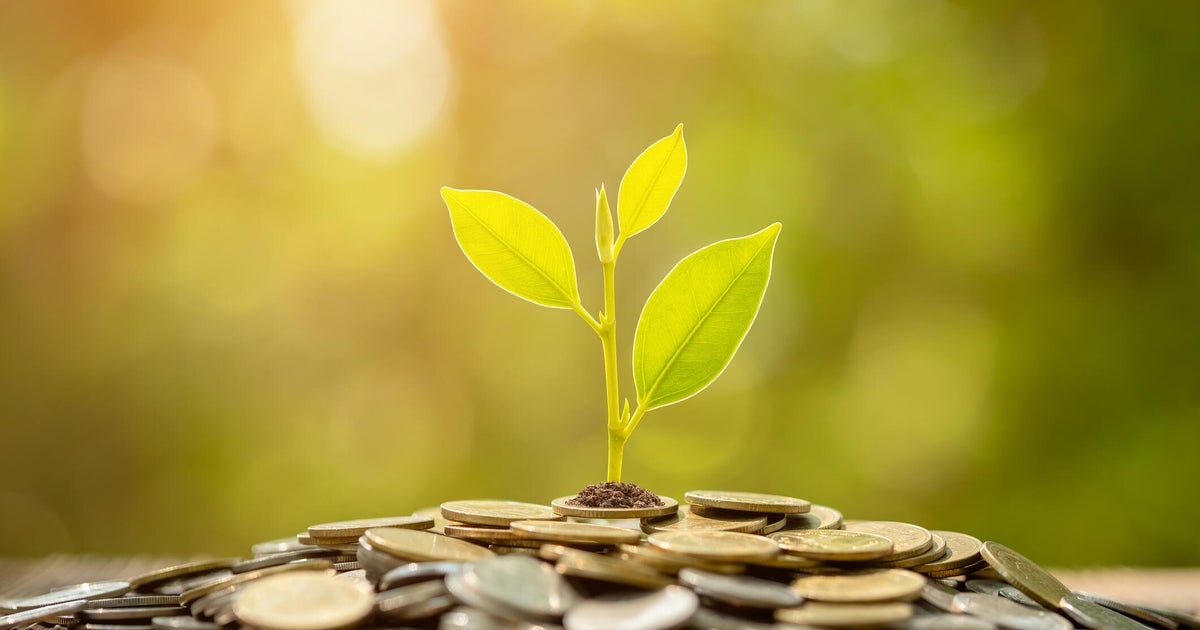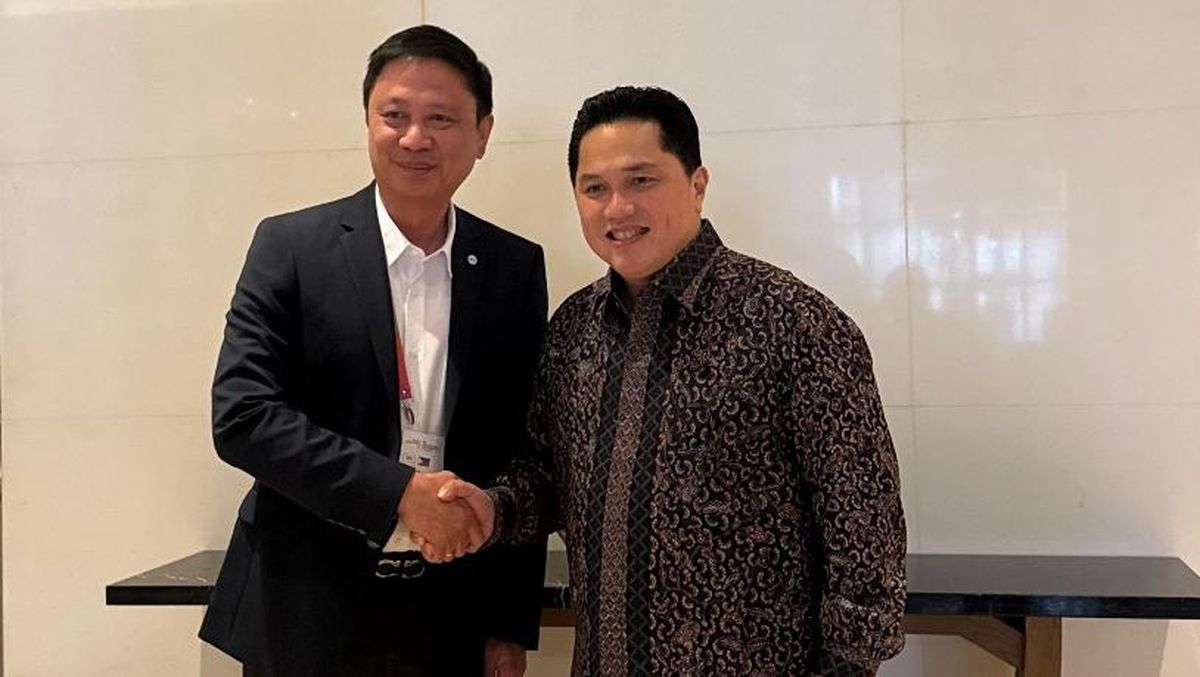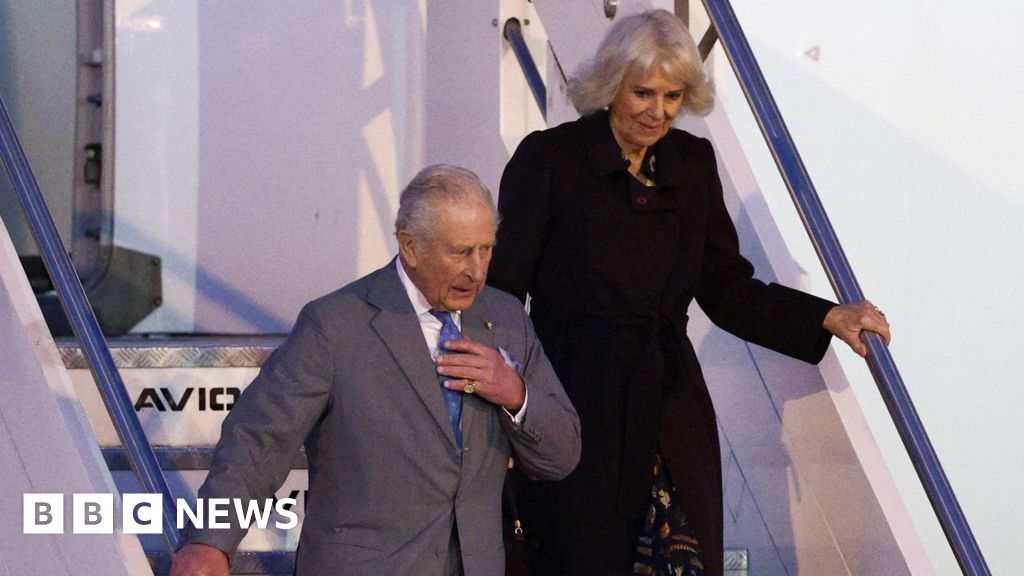The audience warms to Jacinda Ardern as soon as she starts speaking in a crowded room of political allies in London. She is among friends here in the grand auditorium of Central Hall, across the road from Westminster Abbey, and she can reflect on her time as prime minister of New Zealand without the wariness of the politician in power who must watch every word.
When the host, veteran US Democrat adviser John Podesta, calls Ardern the former leader of a midsize country, she is quick to laugh. “Midsize? That’s an upgrade.” The audience is instantly on side, laughing with her. This left-leaning crowd has gathered to talk about how to win elections against the right. The politicians and advisers in the hall want to feel her optimism when they are anxious about losing ground – and worried about what US President Donald Trump might do next.
Ardern brings a buzz to the room as she talks about the future of politics. Her hands swirl through the air as if she is conducting her words into the audience. She is on the podium with Spanish Prime Minister Pedro Sánchez, a hero to the European left, and follows an eminent panel with four prime ministers: Keir Starmer from the UK, Kristrún Frostadóttir from Iceland, Mark Carney from Canada and Anthony Albanese from Australia. Unlike them, she no longer has to worry about elections or opinion polls. She is free of their constraints – and free of their jargon.
When the subject turns to climate change, Ardern argues a moral case for action to cut emissions and help the planet, but she does not get bogged down in carbon forecasts. She is bracingly positive. “Maybe we don’t need to convince everyone about the morality of climate action,” she says, and then tells the audience of a report about an American who bought an electric vehicle for hunting. “Not because he wanted to improve the planet, or the planet’s outlook, but because it was quieter to sneak up on his prey.” The audience cracks up. “Whatever it takes!” she says, smiling and clapping her hands.
It’s been more than two years since Ardern stepped down as prime minister and slipped from public view. The early part of her prime ministership saw her develop a level of quasi-celebrity, gaining international attention after giving birth to her daughter while in office and for her handling of the 2019 Christchurch massacre. An opinion poll placed her as the most popular PM in a century, months before she led the Labour Party to a landslide in 2020. But the final phase of her leadership was fraught, with the pandemic forcing tough decisions on border closures and vaccine mandates. As public animosity towards her and her government rose, her poll ratings sank. She gave up power in January 2023 and moved overseas with her husband, Clarke Gayford, and their daughter, Neve.
Now she has a new life as a go-to guide on leadership. She has taught for the past two years at Harvard University in the United States as a fellow at the Kennedy School, sharing her experiences with the rising stars of politics from around the world. Earlier this year she took up a similar post at Oxford University in the United Kingdom with a three-year fellowship at the Blavatnik School of Government.
These new roles have allowed Ardern to set up home in England with Gayford – they married in January last year – and their daughter. Neve, now 7, was famously born in the first year of her mother’s prime ministership, and Ardern is still asked about the sheer rarity of a prime minister giving birth while in office. She now has a career that keeps Neve away from the stress and attention of their former lives.
Loading
And she is on a renewed mission to change politics. Ardern, 45, is the subject of a warts-and-all documentary that reveals the inside story of her time in office, drawing on 300 hours of footage, including deeply personal video taken by Gayford at home. There is no make-up and hairspray for Ardern in scenes that show her dealing with terror attacks, the coronavirus and motherhood. The documentary, Prime Minister, reveals the human pressures beneath politics.
Ardern seems relaxed about audiences seeing her up close at periods of high stress, including the moments when she decides New Zealand has to be shut off from the world to shield it from the coronavirus. She weeps in the documentary during some of the tough decisions – and tells me she never thought of asking the producers to cut the tears from the final production.

Ardern with her partner Clarke Gayford shortly after the birth of their daughter Neve in 2018. Ardern was just the second world leader to give birth in office, and the first elected leader to take maternity leave. Credit: Getty Images
“Did I have a problem with crying on tape?” She laughs at the very idea. “I mean, that wasn’t new. New Zealanders had seen that from me before, and I wasn’t afraid of that. We have this idea about leadership, that empathy is weak. What is crying if not just an empathetic response? Empathy is not weak. I think if anything, we’re lacking it in politics. We do see politicians saying that kindness is important to them, and I believe that to be true, but they’re certainly in an environment at the moment where that is not seen as the norm.
“So I had no problem with it because if we don’t demonstrate that we’re human – and that you are capable of making strong, courageous decisions whilst being human – then I don’t know where that leads us.”
Politics is a contact sport, as seasoned practitioners like to say, and there are few outcomes without tension and dispute. At its best, as British political theorist Sir Bernard Crick wrote, politics resolves those conflicts through negotiation rather than through violence. Even those who are “playing politics” are ultimately seeking, in a liberal democracy, to gain the upper hand in a settlement decided by numbers. So went the benign view for decades after World War II.
Yet the sheer aggression of modern politics crushes those old ideals. Leaders used to accept the numbers cast at the ballot box; not Trump, who denies that he lost the 2020 election. Leaders used to respect their rivals; not Trump, who denigrates his opponents with a coarseness his voters appear to enjoy. It is nine years since Trump led rallies chanting “lock her up” against Hillary Clinton, his opponent at the 2016 presidential election. Pundits worried then if campaigns had reached a new low. They do not wonder now.
Loading
The conservative campaigner Charlie Kirk, assassinated in September, handed his opponents a microphone at campus rallies. Trump rejected this. “I hate my opponents,” he said at Kirk’s memorial service. “And I don’t want the best for them.” Former president Richard Nixon said worse on private tapes in the White House, but now the hatreds are out in the open.
It looks like Ardern’s version of politics is being eclipsed by the pitiless populism of the aspiring autocrats – those, like Trump, who will test the boundaries of Congress and the courts in order to get their way.
Just don’t call Ardern the anti-Trump. It’s a phrase that has been pinned on her from the moment Trump stormed into power because it plays to media contrasts: the young woman and the old man, the progressive and the conservative, the empathetic listener and the angry bully. It is hard to think of two leaders in recent times who have been so different.
Did she like being called the anti-Trump? “No,” she says immediately. “And I still don’t.” And she is quick to tell me why. “I see leaders in their own right, and I really rebel against the idea that every leader should be defined by one other person,” she says. She gives a dismissive laugh. “Where’s the spotlight on the people who are trying to build consensus, the people who believe that politics should have some humanity, and who aren’t interested in the cut and thrust, but who are actually builders?
“I think one of the situations we have at the moment is that people are feeling so disenfranchised because they’re seeing a politics transacted that they don’t see themselves in. They want to see their issues, in their day-to-day lives, being fixed.
“So defining all politics around this one particular style?” She shrugs. “I push back against that. I’d rather talk about empathetic leadership.”
This is heartfelt and positive. It is also a masterclass in political messaging. Ardern confronts the conservative populism that dominates global news each day, and she does it without naming Trump. Her core point is that we are all watching politics, but we are not seeing successful politics.

Jacinda Ardern appearing on The Late Show with Stephen Colbert in 2018.Credit: Facebook/@colbertlateshow
“What is success in politics? If we use a crude measure of whether or not you’re in power, that, in my mind, is not sufficient as a measure. You may be in power because you’ve campaigned on something that might be important to someone at the time, like their financial status or their cost of living. But if, in the course of your time in office, you fracture communities, you leave your country divided, you don’t resolve the issues that people asked you to, and your democratic institutions are undermined – well, that’s not winning. That’s leaving communities in disarray.”
Ardern wants the progressive side of politics to prepare for a moment when voters grow weary of the populist promises. “It may be that we’re going through a period where people are just having to see that they will come out the end of it worse off, not better off. And progressives really need to have those solutions ready at that point.” Again, she is reluctant to mention Trump – no matter how much I ask about him. In part, that’s because she believes the changes ahead are bigger than one leader or one party. “Political culture is globalised now. I’ve seen Trump flags flying in New Zealand.” This explains why Ardern finds her message resonates in places far beyond her home country.
Podcasters and television hosts are eager to hear Ardern’s take on the world. She spoke to Oprah Winfrey for the megastar’s podcast in June, then sat with Stephen Colbert for an interview with The Late Show on CBS. The same month, she appeared on The Rest Is Politics with Alastair Campbell and Rory Stewart, one of the most popular podcasts in its field. She spoke to Jon Stewart on The Daily Show in September.
Her story is all about unexpected successes – and setbacks. Ardern was born in 1980 in Hamilton, on the North Island, and raised in Murupara, south-east of Rotorua. Her father was a police officer and her mother worked in school catering, and she was brought up with her sister in a practising Mormon family. She learnt how to knock on doors to talk to people about some of the deepest subjects possible – spirituality and faith. Her family name carries weight among Mormons but Ardern struggled to reconcile the doctrine with her personal beliefs. She has often cited her support for LGBTQ rights as a reason she left the church in her 20s.
She worked as a political adviser in Wellington and London, and entered parliament at the age of 28. When Labour looked set for defeat at the 2017 election, the party’s leader, Andrew Little, realised he had to step down. The party turned to Ardern, who won ground at the election and negotiated a minority government in the hung parliament. She was prime minister at 37.
The excitement and exuberance of that victory continued after Ardern gave birth to Neve in June 2018, making her the world’s second prime minister (after Benazir Bhutto of Pakistan) to give birth while in office. Later, she revealed asking Queen Elizabeth II, at a Commonwealth gathering in London, about how the head of state had balanced royal duties and motherhood. “You just get on with it,” the Queen replied.

Jacinda Ardern hugs a woman at a mosque in Wellington, two days after the Christchurch mosque shootings.Credit: Getty Images
Ardern seemed to take that approach to heart. While her time as leader was marked by the pandemic, the most shocking challenge came in April 2019 when an Australian man attacked two mosques in Christchurch, killing 51 people and wounding another 89. The horrific scenes were streamed live on Facebook to promote the gunman’s extremist right-wing manifesto, also published online. Police stopped him before he could reach a third mosque. He is now serving a life sentence. One image from the aftermath remains powerful to this day: Ardern wearing a headscarf, borrowed from a friend at short notice, as she hugged members of the Islamic community hours after the attacks. “If you believe in empathetic leadership, then actually what motivates you is to try and prevent something like that ever happening again,” she tells me. When she spoke to Trump on the phone – this was during his first term as president – he asked what he could do to help. She told him to show love and sympathy to all Muslim communities.
What stood out in the months afterwards, however, was her determination to change the way extreme violence could spread so easily online. The result was the Christchurch Call, an agreement among national leaders to force Facebook and other social media platforms to stop streaming terrorist and violent extremist content online. Ardern began by calling then-German chancellor Angela Merkel, who suggested she speak to French President Emmanuel Macron. Then she took her idea to global summits, gaining support from leaders from most liberal democracies.
‘Most people were motivated by making change for the better. Somewhere along the way, people have lost the sense that people in politics are motivated by that.’
Jacinda ArdernThere is more to be done, she says, but she claims the streaming agreements under the Christchurch Call helped stop some of the online violence. Ardern says it also proved to her that the political leaders she met – whether they were from the left or the right – wanted to help. “Most people were motivated by making change for the better,” she says. “Somewhere along the way, people have lost the sense that people in politics are motivated by that.”
Perhaps kindness in politics really does get results. Ardern points to signs of hope on that score – like the fact that Anthony Albanese mentioned kindness in his address on election night when he was confirmed as prime minister in May, or that Mark Carney used the word when he won the Canadian election and became prime minister in April. While Trump dominates global politics, progressive leaders have shown this year that they can win as well.
The pandemic upended her time in power. Ardern ruled in her first term as the leader of a minority government, but she led Labour to a landslide in October 2020 when the nation endorsed her to lead the way out of the pandemic. But the coronavirus was not finished with New Zealand or the world. The toughest decisions came in the next year, when Ardern kept the borders closed and raced to find vaccines.
As in Australia, a vocal group of opponents reacted with fury to vaccine mandates. Hundreds of protesters camped outside the Beehive, the distinctive parliamentary building in Wellington. In March 2022, protesters lit fires and threw projectiles at police. Ardern called a press conference to condemn what she called an illegal occupation. The new documentary reveals the pressure she was feeling to calm the nation’s nerves.
Those pressures seem long gone as we talk in a plush suite in a Soho hotel. Ardern sits comfortably on a lounge, wearing a vibrant blue corduroy pants suit and looking perfectly at home in this fashionable part of London. It seems fitting, however, that the room is decorated with wallpaper showing endless grey clouds, accidentally invoking the storms of the past.

Ardern speaks with New Zealanders after their second COVID-19 vaccine dose in October 2021 in Wellington.Credit: Getty Images
If there were a film award for oversharing, Prime Minister might win it. The documentary, produced by New Zealand company Dark Doris Entertainment, shows highly personal footage of Ardern in her bedroom, talking to the camera while she sits up against a pillow to finish a day’s work. No other politician has put themselves in front of the camera in this way. Gayford not only films Ardern on his mobile phone at key moments of her leadership, but he appears alongside her in scenes throughout the documentary (due for Australian cinema release on November 6). It’s 100 per cent human.
The couple are wise to the oddity of the production. At one point, Gayford carries a laundry basket into a room and Ardern mocks him for setting up a fake display of the man doing the housework. It is corny, funny and endearing. “It felt like an extension of what I hoped to do while I was in office, rather than something new entirely,” she says. “While I was in office, I felt like part of my job was that people needed to get to know who you were as a leader. So I felt like I was pretty open in my time in office. I felt like I tried to always be myself.”
Loading
Why continue doing it now? Ardern has given up power. That usually means giving up any obligation to share private moments with the public. “For me, the motivation changed,” she says. “The motivation here was simply, how do we rehumanise leadership? It sounds very simplistic, but I do think that it’s very easy to lose our sense of humanity in a technologically driven age.”
Even when the camera got too close, Ardern did not tell the filmmakers what to do. “You’ve got to trust in the storytellers,” she says. This is unthinkable for most politicians because so many of them want to create and maintain their personal narrative.
So the documentary is an edgy experiment. It tries to break out of the cycle of dehumanising battle to reveal the reality behind political life, with all its personal peaks and troughs. It serves a political purpose – and Ardern knows it. “I’ve always tried to change politics,” she says. Ardern may have left parliament and high office, but politics is her mission. And she is not done yet.
To read more from Good Weekend magazine, visit our page at The Sydney Morning Herald, The Age and Brisbane Times.


